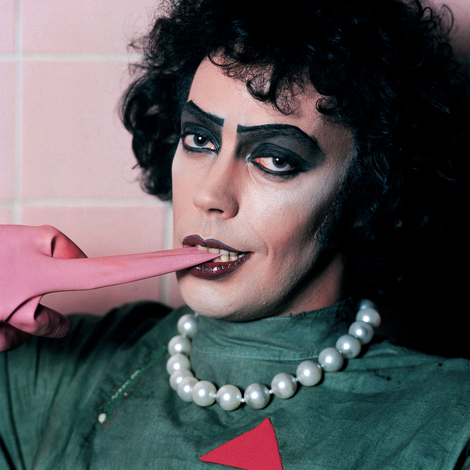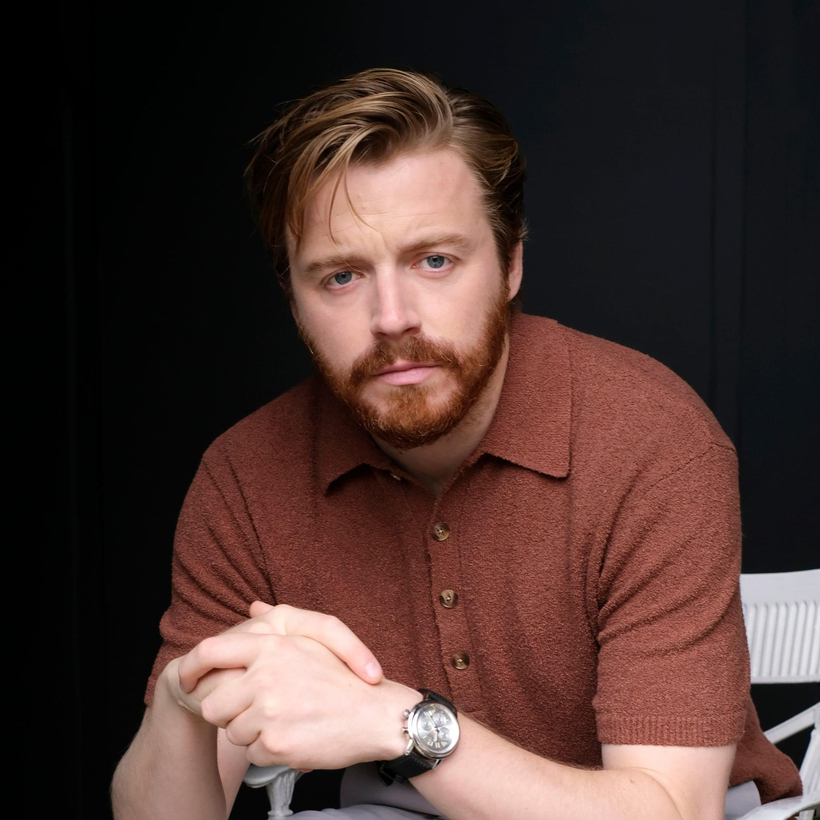As soon as Jack Lowden gets the scripts for each new season of Slow Horses, he rifles through them to see if his character gets out of it alive. “I’d imagine most of the cast do that,” he says. “Anything could happen.” Sure enough, the first three series of this Apple TV+ show, adapted from Mick Herron’s darkly funny thrillers about a bunch of disgraced MI5 spies working out of a dingy office in the City, has a fair few regulars die inglorious deaths along the way.
Yet even though Lowden, 34, plays the heroic central character River Cartwright, and he, Gary Oldman and Kristin Scott Thomas are the only regulars whose names appear in the opening credits, he takes nothing for granted.
Slow Horses is an offbeat series in which banter gets traded at a sitcom lick, but characters also get hurt, ruined and murdered. The fourth series began this week. No spoilers, but Cartwright doesn’t have an easy few hours.

If it’s jarring to hear Lowden speak in his own Scottish accent — a mild but distinct Lowlands burr — I blame him for being so darned good at pretending to be English. Yes, he spoke in his own accent as an RAF pilot in Christopher Nolan’s film Dunkirk. And he’s Scottish in The Fifth Step, the play he’s in now (his first theater job for seven years).
If you know him as Cartwright, though — or from the TV series War and Peace, as the Brink’s-Mat robber Kenneth Noye in the BBC drama The Gold, in The Long Song and Steve McQueen’s Mangrove, or the film Mary Queen of Scots, where he met his wife Saoirse Ronan, the four-time Oscar-nominated 30-year-old Irish actress — hearing him talk in his real voice comes as a shock.
On accents, as on most things, he talks directly and affably. “What are we here to talk about?” he asks chummily as he picks me up in the foyer at the Royal Lyceum Theatre in Edinburgh, where he will be onstage in two hours’ time. We hole up in the stalls bar, which is closed and deserted, albeit accompanied by the noise of crates of booze being unloaded. As we talk, a bunch of crew members drift in to eat an early dinner at the next table along. It’s quite a Slow Horses kind of star encounter: not entirely unglamorous, but not disconnected from reality either.
He was cast as Cartwright before the pandemic, then had to wait till the end of 2020 before shooting could begin. “I’d never read a script so dripping in sarcasm and cynicism, which is what I gravitate to. So I knew quite quickly what to do with it.” He auditioned in his own voice, then was asked to try it in RP English. The producers preferred him RP. “Which I was gutted about.”
It is, I tell him, an uncanny voice. You can almost tell what minor public school Cartwright went to, what sort of pub he likes going to with his mates. “That’s what we were going for. He’s definitely played cricket and rugby.”
He brings out a bit of the well-spoken English voice he used to do as a young actor: too clipped, too posh, too approximate. Slowly, after living in London for a bit, he found his English voice. “It was around about the time I was doing the play Chariots of Fire [in 2012]. One day it just all started making sense. Now I find it really easy.”
He found it harder doing a Norwich accent as Florence Pugh’s brother in Stephen Merchant’s wrestling film Fighting with My Family. Hard, too, to do a Manchester accent as the singer Morrissey in the film England Is Mine. “I do enjoy doing them all. I just wish I could use my own accent.”

Slow Horses has cemented his fame, but being on Apple TV+ meant that it took a while to filter through. “It didn’t blast off. And in a way we are thankful that we were allowed to work out what the tone is — that mix of life-and-death situations and domestic mundaneness — behind closed doors.”
He was amazed to hear Bill Gates declare himself a fan of the show. “I mean, what the f***?” He suspects Cartwright led to him getting his first big American role this year, acting alongside Jamie Lee Curtis and Rebecca Hall in Ella McCay, a film by the director James L Brooks (Broadcast News, The Simpsons). Lowden spent five weeks in Rhode Island talking in an American voice at all times. “Once you get over the initial embarrassment, it does make complete sense.”
None of that is needed for Slow Horses, the fifth series of which he finished filming recently. Yet he points out that Oldman, who looks as if he is winging it with flamboyant ease as Cartwright’s boss Jackson Lamb, prepares meticulously. “There’s a lot of effort that you don’t see with Gary. But Gary just goes for it. He’s not embarrassed.”
“I’d never read a script so dripping in sarcasm and cynicism.”
Lowden loves going to watch Oldman and Scott Thomas shooting their scenes together, even when he is not in them. “What I’ve learnt working with them, and Jonathan Pryce, Simon Russell Beale, Fiona Shaw, Lesley Manville, all these greats, is that they are a group I want to be a part of. They have a grounding in theater. You can tell because none of them take themselves seriously. They have a great company feel, they have amazing ears for rhythm, they turn up well prepared. I want to be part of that.”
Hence, in part, squeezing in this new play that David Ireland (Ulster American, Cyprus Avenue) wrote at Lowden’s request. You can tell that from one of the lines, when Lowden’s character, a young recovering alcoholic, is referred to as “blond, with a burst of golden honey”. Lowden laughs. Yes, that one was just for him.
It was a limited run with only two and a half weeks of rehearsal, crammed in between Slow Horses, his wedding to Ronan in July and the fallow time he has ring-fenced for himself. He doesn’t know what is next — he says a sixth Slow Horses series has not been confirmed — but he knows he needs a break. And a honeymoon? He smiles, shakes his head. “One day, one day.” The wedding to Ronan was a secret ceremony for family and close friends arranged with MI5 levels of discretion in Edinburgh. Lowden is, however, sporting a wedding ring today.

He grew up in the village of Oxton in the Scottish Borders and went to Earlston High School nearby, and to various acting clubs and classes in Edinburgh. His father, Gordon, worked for Bank of Scotland for 40 years. His mother, Jacquie, “did every job under the sun. She was an animal handler at Edinburgh Zoo. She was a private investigator for a day, she ran a café gallery, she was a tour guide. She has a sense of ‘give it a go’.”
He and his younger brother, Calum, inherited some of that spirit. Both went to dancing lessons, but whereas Calum became a ballet dancer, Lowden gravitated to acting. After doing a degree at the Royal Conservatoire of Scotland, he spent nine months touring in a revival of the play Black Watch, about the Scottish regiment of the same name.
He went to London and soon got big roles in Chariots of Fire and alongside Scott Thomas in Electra at the Old Vic. Aged 23, he got an Olivier for best supporting actor for his role alongside Manville in Ibsen’s Ghosts. It went so well so fast, he admits. “I didn’t get into film or TV until I was about 24. That’s becoming rarer. Actors are getting into long-running TV things when they are 19. It’s a long way from Gary’s generation.”
What does he feel young actors miss by skipping stage work? “They’re missing life experience. And I think working in theater forces you to be company-minded.”
He says the idea that he is a subtle actor follows him around. “But honestly I’m not trying to be subtle. I’m trying, first and foremost, just to convince you that I’m a real human being. The other half of it is driven by embarrassment.”
He’s played a few shits, best of all Lord Darnley in Mary Queen of Scots, and loved it. “Playing a bastard is so freeing because I go out of my way every day to try and be a nice person. I’m dreadful at any kind of confrontation. If the wrong thing is given to me in a restaurant, I’ll just eat it.” On the other hand he also plays a lot of self-doubters.
“It’s becoming the norm for male characters to question themselves, and that makes sense. I mean, I don’t feel like a complete person, I feel like pieces of a person, so those characters who struggle with themselves I can identify with.
“Playing a bastard is so freeing because I go out of my way every day to try and be a nice person.”
“And that’s easier to play than, say, Jason Bourne. Jason Bourne has problems, but they are not to do with self-confidence.” Likewise James Bond, right? He is one of a small squad of good-looking British actors of a certain age whose names get mentioned when talk turns to whoever takes over from Daniel Craig. He shrugs. “I’ve been told this. Yeah, I don’t know if James Bond is complete either.”
He and Ronan spend much of their time in London, but their home is in the Scottish Borders. He is committed to staying there and generating work from there. He’s one of the producers on Ronan’s new film, The Outrun, taken from the author Amy Liptrot’s memoir about returning home from London to the Orkneys. He read the book in lockdown and urged Ronan to read it. “I said, ‘I think that’s a part for you,’ and she agreed, and then we sort of motored our way into the production. And being a producer on that was just one of the greatest experiences of my life, truly, and not being involved on-camera. Such a relief.”
He hopes to do it again and is “desperate” to direct too. “I enjoy the problem-solving aspect. I enjoy being outside. I enjoy not standing in my trailer for three hours just thinking of myself and my lines. I enjoy not being bored. I enjoy being useful.”
He and Ronan want to set up their own production company locally. He’s at the stage of his career he always longed to get to, “to be at a level where I can choose work, and where I have any kind of clout whatsoever to help get work made. London doesn’t need as much help. I want to be here. I would have been lost without the arts. I was a shy kid. I don’t know what I would have done. It’s incredibly lucky that things have worked out like they did and now I want to be of use.”
It is, he admits, “not ideal” for a marriage when both partners are so often away filming. “Making work together solves that problem, so that’s another reason why we want to do more together. The Outrun gave us such a taste for it. And it can be a lonely thing, this profession.”
We will be hearing more from Jack Lowden, that’s for sure. What accent we will be hearing him using, however, remains up for grabs.
Dominic Maxwell is a commissioning editor and writer at The Times of London

